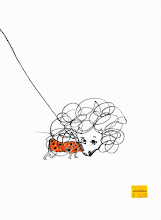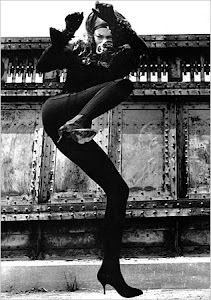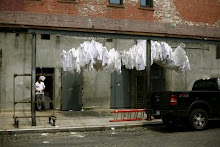I must have read this book a half dozen times now, and I've seen the movie about as many. The movie is worth it, too, not just for extended views of Daniel Day Lewis but have you ever seen a glove, a demure one, not as per Dita von Teese and her ilk, handled so sensually and erotically? In those early days of manners and layers and layers of dressing you take your sensual pleasures where you can.
If we focus strictly on relationships and not the larger views of art, culture and social mores, this book is cautionary and richly detailed. Edith Wharton tips her hand in terms of where her views are on the worth of the individual versus the group in that the warm, alluring, clever, imaginative Countess Olenska is a far more captivating character than the conventional, dreary (but sweet! oh so sweet) May.
Newland Archer thinks he is a good man but like many who take this as a virtue, he is merely a weak man who follows where he is led. He has a passionate flirtation with Olenska but balks at the social cost of being in a relationship with someone so original. She has his heart and soul, but something else -- what IS it, this thing inside so many people that causes them to compromise living their true lives?? -- moves him toward May.
And then May outplays him. Plays the oldest trick in the book. While he can faithfully explain his unfaithfulness to her -- he had to marry her, it was expected, but he doesn't LOVE her you see, he loves you Olenska!! May gets pregnant.
So what we know of Archer is that he is deeply, deeply unworthy. Olenska removes herself from the fray and at first you can think poor dear, he betrayed her and she is sad and sorry. But she isn't I don't think. He has played both sides and she now finds him tedious. And forces him to accept the choice he has clearly made. No more cake eating for Archer.
In the end Archer has May and a family and Olenska retains her intriguing life and her circle of interesting, artistic friends and, in the end, the interest of one of Archer's children.
But who has won?
Neither. There is no winning of course -- Archer has a family and the love of children and conventional success and social position. Olenska, and I relate to her I blush to admit, I hope I am not overestimating how deeply interesting I am (though in fairness Wharton has ensured we ALL prefer Olenska) Miss Olenska has her circle of witty and intellectual friends who we know for sure are fascinated by her and adore her from afar. It is not fully spelled out but it seems she has never had that great soul-touching love. Perhaps it is impossible to love someone so glittering and glorious, as she is extraordinary enough to elicit fear (that you might not measure up, that if she left YOU the hollow absence would obliterate you). Both Archer and Olenska remain admired but unseen and unknown to their last day. Perhaps the point is their only chance at being truly known, and loved, was with each other. And Archer choked.
It's good that he recognized he choked. In the end his son asks if he will come into the salon to see Olenska again. He has the good grace to stay away.
Subscribe to:
Post Comments (Atom)












5 comments:
Your final, brilliant point was really the whole film for me.
That Archer finally recognized his weakness, his having blown it, and if only for a moment, he showed uncharacteristically something like strength by walking away one more time.
Weaker men would have followed the son upstairs.
You do not overestimate how interesting you are.
Whenever I'm talking movies and the subject of the sexiest scene comes up, my answer always, always is that moment in the carriage with that glove. I guess I'm not the only one who loves understatement!
Age of Innocence is one of my favorite books, too - for precisely the reasons you wrote here. I loved reading your review.
There was one oter thing about the film that we overlooked: all those Poms!
I'm sorry I haven't seen the film (I will now) but you are being too hard on Archer. Archer was 'doing his duty' as he saw it, which is a fundamental rule for 'the good man'.
I don't recall any description of the fascinating life that Olenska is supposed to have led going off to exotic Europe. Who knows if she was moping over her lost love or happy she ditched the clown? Love is fickle, and there seems to be some amount of chance involved in finding someone to love.
For me the core is that art is ambiguous.
No ambiguity means you are not looking hard enough, or spinning the message. I think you admit as much....good for you. Can we all imagine the crush of rejection of the extraordinary?
Keep writing.
hi there. i've enjoyed reading your blog. parts of it (i'm at work, so i would have to read the rest later).
i really dont read fiction, i love to read, but its usually as the result of some obsessive interest that i'm knee deep into. so i read christopher hichens when i can, or something on evolutionary psychology. but i like the way you're expressing your interest in reading, and your writing is quite nice. bright, but casual. its nice.
thanks posting. i'll check back to see what you're reading next.
i like
Post a Comment